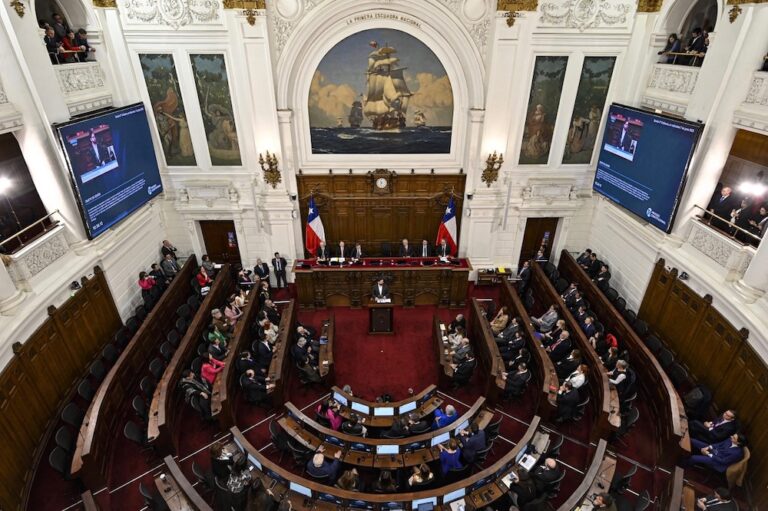(IPYS/IFEX) – In a 6 December 2001 letter, the Inter-American Court of Human Rights asked the Chilean government to provide the court with information on its progress in eliminating film censorship within sixty days. The letter refers to the court’s February ruling which condemned the Chilean government’s banning of the film “The Last Temptation of […]
(IPYS/IFEX) – In a 6 December 2001 letter, the Inter-American Court of Human Rights asked the Chilean government to provide the court with information on its progress in eliminating film censorship within sixty days. The letter refers to the court’s February ruling which condemned the Chilean government’s banning of the film “The Last Temptation of Christ”, a ban which remains in effect.
On 5 February, the court ruled that as a member of the inter-american system, Chile had violated articles of the American Convention on Human Rights “Pact of San Jose, Costa Rica” that protect freedom of expression. The court instructed the government to eliminate all forms of film censorship.
According to the 9 December edition of “El Mercurio”, the court’s summons stems from the fact that “in the documentation that forms part of the case’s file, it appears that despite the approval of constitutional amendments which would eliminate film censorship, a law on film ratings would have to be passed for this to take effect.”
Members of parliament and senators sitting in the congress plenary approved the aforementioned constitutional amendment on 10 July. However, further discussion has been mired in parliament since 16 March and a new ratings law has still not been brought forward.
The court’s letter, signed by Secretary Manuel Ventura and addressed to Alejandro Salinas, human rights advisor to the Chilean Foreign Ministry, asks the government to “inform [the court] when the Film Ratings Council (Consejo de Calificacion Cinematográfica, CCC) has reclassified “The Last Temptation of Christ” allowing it to be screened, as it has done with other films.”
In 2001, the CCC lifted the bans on the films “Everything you always wanted to know about sex (but were afraid to ask)” by Woody Allen, “Bilbao” and “Las edades de Lulú” by Juan José Bigas Luna, and “Pepi, Luci y Bom y otras chicas del monton” by Pedro Almodovar. These films were banned by the CCC in the 1990s.
The Chilean government has until 8 February 2002 to inform the court of the measures it has taken to permit the screening of “The Last Temptation of Christ”.


